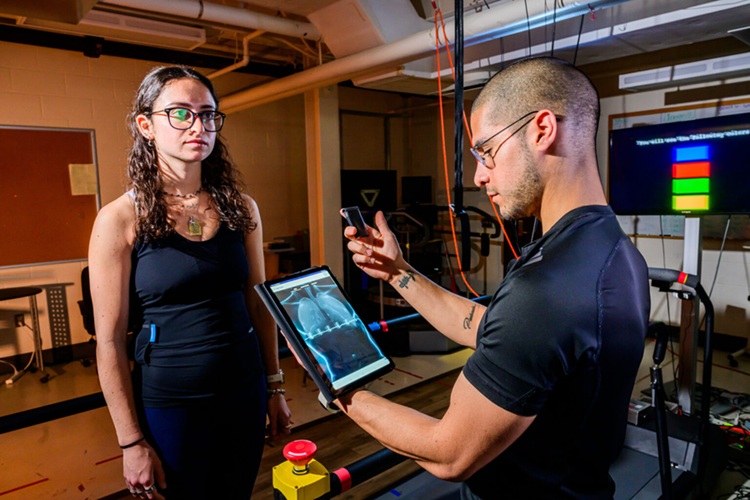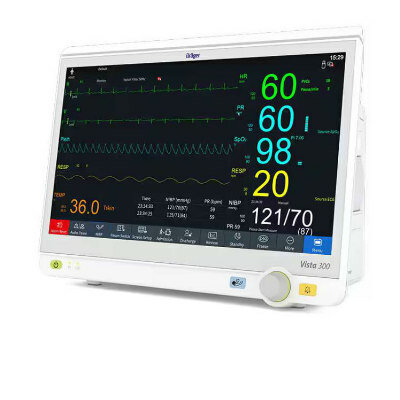AI Automates Detection of Mitral Regurgitation on Echocardiograms for Minimally Invasive Procedure
|
By HospiMedica International staff writers Posted on 23 Aug 2024 |

Mitral valve regurgitation is the most common but often missed heart valve disorder. Out of the four valves in the heart for facilitating blood movement throughout the body, the mitral valve, situated on the heart's left side, fails to close properly in some individuals, leading to blood flowing backward, a condition known as mitral valve regurgitation. This issue hampers blood circulation and may evolve into more severe complications such as shortness of breath, arrhythmia, and heart failure. Accurately determining the severity of this condition is crucial to deciding whether patients might adopt a watch-and-wait strategy or require immediate intervention. Researchers have now developed an artificial intelligence (AI) program to detect the presence and severity of mitral valve regurgitation from echocardiograms that could help identify patients for a minimally invasive procedure or surgery.
To develop the new program, investigators at Smidt Heart Institute at Cedars-Sinai (Los Angeles, CA, USA) utilized over 58,000 transthoracic echocardiograms—a type of ultrasound imaging used to evaluate heart conditions, including mitral regurgitation. The effectiveness of this program was evaluated using echocardiograms from 1,800 patients at Cedars-Sinai and an additional 915 from Stanford Healthcare. The findings, published in Circulation, show that the AI model demonstrated high accuracy in identifying moderate to severe cases of mitral valve regurgitation. After analyzing videos from more than 50,000 echocardiogram studies, the deep learning model effectively identified the most relevant and important videos for evaluating the severity of mitral regurgitation.
“This could improve how we identify patients with mitral regurgitation, which is becoming more prevalent in our aging population, and to personalize treatment even more so than we already do,” said Raj Makkar, MD, associate director of the Smidt Heart Institute, where the team has also performed more than 1,500 robotic mitral valve repairs with a near 100% success rates.
Related Links:
Smidt Heart Institute
Latest Critical Care News
- Novel Intrabronchial Method Delivers Cell Therapies in Critically Ill Patients on External Lung Support
- Generative AI Technology Detects Heart Disease Earlier Than Conventional Methods
- Wearable Technology Predicts Cardiovascular Risk by Continuously Monitoring Heart Rate Recovery
- Wearable Health Monitoring Device Measures Gases Emitted from and Absorbed by Skin
- Groundbreaking Technology Rapidly Detects Airborne Influenza Viruses
- Handheld Device Could Transform Heart Disease Screening
- Flexible Semi-Autonomous Robot Could Deliver Medicine Inside Body

- Neurorestorative Treatment Strategies Hold Promise for Most Severe Forms of Epilepsy
- Gene Discovery Could Help Grow New Heart Arteries
- Study Discovers Invisible Transmission of Common Hospital-Associated Infection
- Non-Invasive Neuro-Ophthalmology Techniques Could Detect Brain Tumors Earlier
- Mass Manufactured Nanoparticles to Deliver Cancer Drugs Directly to Tumors
- World’s Smallest Pacemaker Fits Inside Syringe Tip

- AI-Powered, Internet-Connected Medical Devices to Revolutionize Healthcare, Finds Study
- Starfish-Inspired Wearable Tech Enables Smarter Heart Monitoring
- AI Eye Scans Could Help Identify Heart Disease and Stroke Risk
Channels
Critical Care
view channel
Novel Intrabronchial Method Delivers Cell Therapies in Critically Ill Patients on External Lung Support
Until now, administering cell therapies to patients on extracorporeal membrane oxygenation (ECMO)—a life-support system typically used for severe lung failure—has been nearly impossible.... Read more
Generative AI Technology Detects Heart Disease Earlier Than Conventional Methods
Detecting heart dysfunction early using cost-effective and widely accessible tools like electrocardiograms (ECGs) and efficiently directing the right patients for more expensive imaging tests remains a... Read more
Wearable Technology Predicts Cardiovascular Risk by Continuously Monitoring Heart Rate Recovery
The heart's response to physical activity is a vital early indicator of changes in health, particularly in cardiovascular function and mortality. Extensive research has demonstrated a connection between... Read more
Wearable Health Monitoring Device Measures Gases Emitted from and Absorbed by Skin
The skin plays a vital role in protecting our body from external elements. A key component of this protective function is the skin barrier, which consists of tightly woven proteins and fats that help retain... Read moreSurgical Techniques
view channel
Intravascular Imaging for Guiding Stent Implantation Ensures Safer Stenting Procedures
Patients diagnosed with coronary artery disease, which is caused by plaque accumulation within the arteries leading to chest pain, shortness of breath, and potential heart attacks, frequently undergo percutaneous... Read more
World's First AI Surgical Guidance Platform Allows Surgeons to Measure Success in Real-Time
Surgeons have always faced challenges in measuring their progress toward surgical goals during procedures. Traditionally, obtaining measurements required stepping out of the sterile environment to perform... Read morePatient Care
view channel
Portable Biosensor Platform to Reduce Hospital-Acquired Infections
Approximately 4 million patients in the European Union acquire healthcare-associated infections (HAIs) or nosocomial infections each year, with around 37,000 deaths directly resulting from these infections,... Read moreFirst-Of-Its-Kind Portable Germicidal Light Technology Disinfects High-Touch Clinical Surfaces in Seconds
Reducing healthcare-acquired infections (HAIs) remains a pressing issue within global healthcare systems. In the United States alone, 1.7 million patients contract HAIs annually, leading to approximately... Read more
Surgical Capacity Optimization Solution Helps Hospitals Boost OR Utilization
An innovative solution has the capability to transform surgical capacity utilization by targeting the root cause of surgical block time inefficiencies. Fujitsu Limited’s (Tokyo, Japan) Surgical Capacity... Read more
Game-Changing Innovation in Surgical Instrument Sterilization Significantly Improves OR Throughput
A groundbreaking innovation enables hospitals to significantly improve instrument processing time and throughput in operating rooms (ORs) and sterile processing departments. Turbett Surgical, Inc.... Read moreHealth IT
view channel
Printable Molecule-Selective Nanoparticles Enable Mass Production of Wearable Biosensors
The future of medicine is likely to focus on the personalization of healthcare—understanding exactly what an individual requires and delivering the appropriate combination of nutrients, metabolites, and... Read more
Smartwatches Could Detect Congestive Heart Failure
Diagnosing congestive heart failure (CHF) typically requires expensive and time-consuming imaging techniques like echocardiography, also known as cardiac ultrasound. Previously, detecting CHF by analyzing... Read moreBusiness
view channel
Expanded Collaboration to Transform OR Technology Through AI and Automation
The expansion of an existing collaboration between three leading companies aims to develop artificial intelligence (AI)-driven solutions for smart operating rooms with sophisticated monitoring and automation.... Read more

















